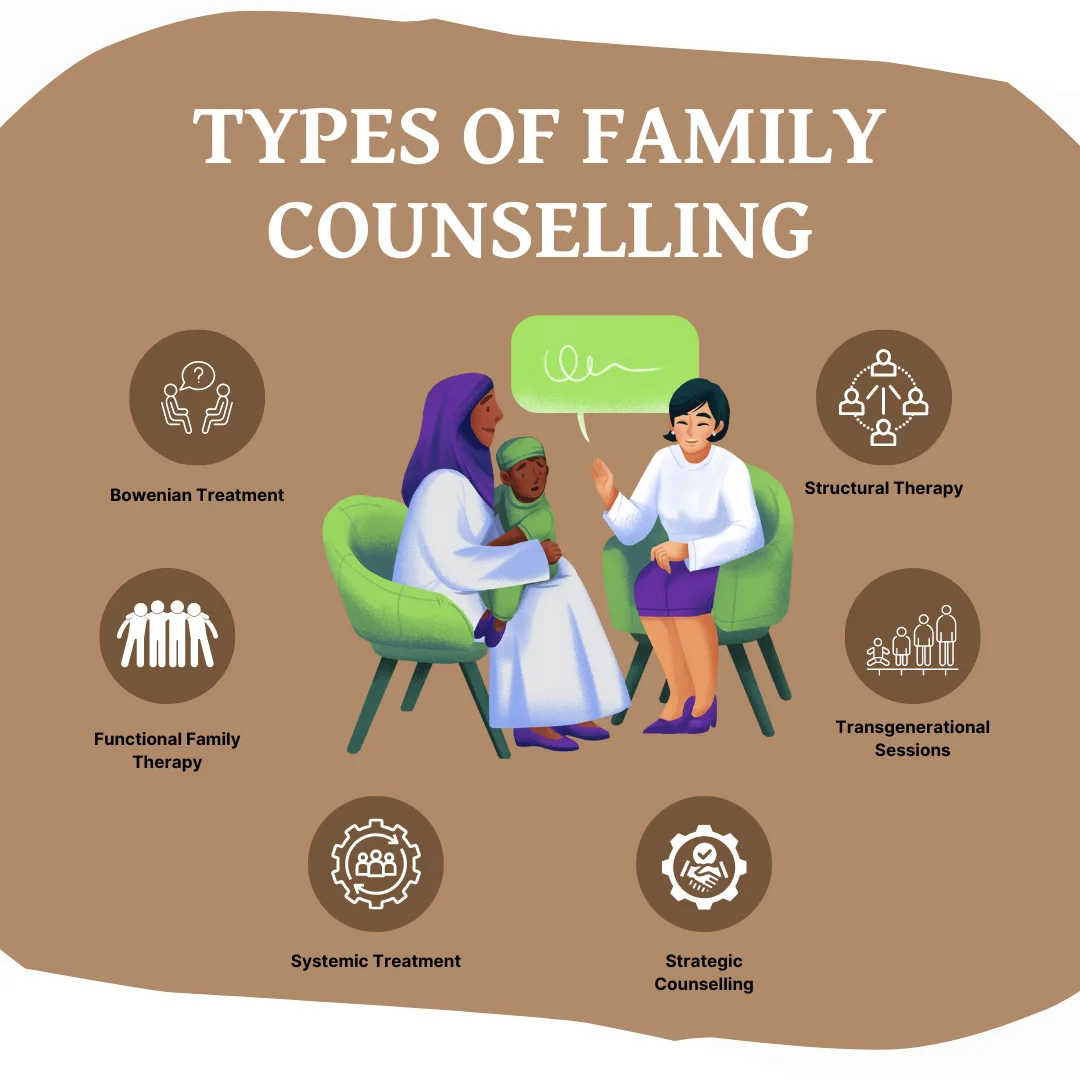Exploring the Benefits of Virtual Therapy in Modern Mental Health And Wellness Care
The rise of virtual therapy marks a substantial shift in psychological healthcare. It supplies enhanced access, allowing people from varied histories to look for help without geographical restraints. Flexibility in organizing suits varying way of lives, while the convenience of home can cultivate openness. Nonetheless, the implications of these modifications prolong past simple ease. The advancing landscape of therapy elevates crucial inquiries concerning its long-term results on client interaction and therapy results.
Improved Accessibility for All
Conventional therapy typically provides barriers such as geographical area and scheduling disputes, virtual therapy significantly improves availability for people looking for mental health support. By getting rid of the need for physical travel, virtual therapy permits clients from remote locations or those with mobility obstacles to get in touch with certified specialists. This mode of therapy can reach underserved populaces that might lack regional mental health sources, consequently attending to variations in accessibility to care. In addition, virtual platforms can accommodate diverse needs, supplying solutions in multiple languages and fitting numerous social histories. Customers can involve with a wider array of professionals, giving them with alternatives that straighten with their certain needs and preferences. This increased accessibility fosters a more comprehensive setting, permitting people to seek assistance without the stigma often connected with in-person visits. In general, virtual therapy stands for a substantial development in making psychological healthcare much more obtainable to all.
Versatility in Organizing Procedure

As virtual therapy remains to get grip, its intrinsic adaptability in scheduling sessions shows to be a significant benefit for several individuals. Unlike conventional in-person therapy, virtual therapy allows clients to select session times that best fit their personal and specialist dedications. This versatility fits those with demanding work schedules, family obligations, or various other commitments that can make going to physical consultations challenging.
Moreover, customers can conveniently reschedule or readjust their sessions as needed, reducing the tension related to inflexible appointment systems. The availability of numerous time ports throughout the week, consisting of nights and weekend breaks, additionally boosts availability. This versatility not only encourages consistency present but additionally cultivates a greater commitment to the therapeutic process. Eventually, the flexibility in scheduling sessions stands for a transformative shift in psychological healthcare, encouraging people to prioritize their well-being without compromising various other aspects of their lives.
Convenience of a Familiar Setting
The convenience of an acquainted setting considerably boosts the efficiency of virtual therapy for several customers. Taking part in therapy from the safety and security of their very own homes allows people to really feel more at simplicity, decreasing anxiousness that might go along with typical in-person sessions. This experience can promote open communication, enabling clients to express their ideas and feelings extra freely.
The presence of personal products and the capability to regulate their environments can contribute to a feeling of safety and security and relaxation. Clients commonly report that being in a comfortable room enables them to focus much more on the healing process instead than the setting itself.
Additionally, the informal nature of virtual sessions can assist liquify barriers that might exist in a traditional workplace atmosphere, fostering a much deeper connection with specialists. Generally, the comfort of acquainted surroundings plays a necessary role in boosting the healing experience and efficiency for lots of people looking for psychological health and wellness support.
Broader Variety of Restorative Choices
A wider series of healing options appears through virtual therapy, allowing clients to access various methods that may not be feasible in conventional setups. This adaptability allows individuals to explore diverse approaches such as cognitive-behavioral therapy, mindfulness techniques, art therapy, and even specialized treatments like trauma-informed treatment or dialectical behavior modification.
Clients can choose from a more comprehensive spectrum of specialists, consisting of those that specialize in specific niche areas or details populaces, enhancing the probability of finding an ideal suit. Virtual systems typically give access to group therapy sessions, support neighborhoods, and workshops that might be geographically not available or else.
This selection empowers customers to engage in their healing procedure according to their distinct preferences and requirements, possibly boosting motivation and dedication to therapy. As a result, the landscape of mental health treatment ends up being extra comprehensive and versatile, satisfying a bigger variety of specific experiences and difficulties.
Decreased Stigma Bordering Therapy
Accessing therapy via virtual platforms adds to a substantial reduction in the preconception commonly associated with mental wellness care. By providing a very discreet and private atmosphere, virtual therapy permits individuals to look for help without the fear of being evaluated or recognized. This anonymity interest those that might or else think twice to seek in-person therapy as a result of societal understandings bordering mental wellness.
As the occurrence of virtual therapy boosts, it stabilizes the conversation around psychological health, making it an extra appropriate part of day-to-day life. People frequently really feel more comfortable reviewing their experiences on-line, advertising visibility and decreasing feelings of isolation. The availability of these solutions likewise urges a more comprehensive group to engage with psychological wellness sources, cultivating a society of support as opposed to shame. Ultimately, the increase of virtual therapy plays a crucial duty in reshaping mindsets towards looking for help, adding to a much more accepting culture pertaining to mental wellness obstacles.
Cost-Effectiveness and Affordability

Lowered Session Prices
Numerous people seeking mental health and wellness assistance find that virtual therapy greatly decreases session costs compared to typical in-person alternatives. The elimination of travel expenditures and pause work frequently adds to total cost savings. Additionally, lots of virtual therapists offer competitive rates as a result of reduced overhanging prices connected with preserving a physical workplace. This shift in expense allows clients to gain access to high quality mental health and wellness solutions without the monetary strain that might feature conventional therapy. For many, this cost allows more constant sessions, which can boost treatment outcomes. Consequently, virtual therapy not just democratizes access to psychological healthcare but additionally provides a sustainable economic model that lines up with customers' budgets, making psychological health and wellness support more achievable for a larger audience.
Increased Accessibility Alternatives
While typical therapy frequently presents logistical barriers, virtual therapy significantly broadens gain access to alternatives for individuals looking for mental wellness care. By eliminating the need for travel and permitting versatile organizing, virtual therapy suits diverse way of livings and dedications. This ease of access is especially advantageous for those in remote locations or with mobility difficulties. Furthermore, the cost-effectiveness of virtual therapy minimizes economic strain, making psychological health solutions extra obtainable. Numerous platforms provide tiered prices or gliding range costs, promoting price. Insurer significantly recognize virtual therapy, additional enhancing its financial availability. On the whole, virtual therapy not just widens the scope of who can obtain treatment however likewise addresses economic barriers, making psychological wellness assistance more inclusive and possible for all.
Improved Connection of Care
Improved continuity of treatment arises as a substantial benefit of virtual therapy in modern-day psychological wellness treatment. This method enables clients to preserve regular communication with their specialists, despite geographical barriers or scheduling disputes. relationship therapy. The adaptability of virtual sessions fosters routine check-ins, which are essential for keeping an eye on development and adjusting treatment plans as necessary
Furthermore, digital wellness documents and telehealth systems facilitate seamless info sharing among care suppliers. This interconnectedness ensures that all experts associated with a patient's care are upgraded on treatment advancements, leading to more worked with and efficient interventions.
Clients frequently experience reduced stress and anxiety and boosted interaction due to the ease of accessing therapy from familiar settings. Such availability boosts adherence to treatment regimens, eventually boosting results - virtual therapy. To sum up, virtual therapy not just bridges spaces in mental health and wellness solutions yet additionally strengthens the continuity of care, a vital element of effective therapeutic connections
Regularly Asked Questions
Exactly How Does Virtual Therapy Guarantee Privacy and Personal Privacy for Customers?
The current question addresses the procedures virtual therapy uses to shield client privacy. Utilizing encrypted systems, protected logins, and compliance with laws like HIPAA, virtual therapy warranties that delicate info stays private and inaccessible to unapproved individuals.
Can I Switch Therapists Easily in Virtual Therapy?
Switching therapists in virtual therapy is usually simple. Clients can communicate their need for a modification via the system, permitting versatility in discovering a better suit without the logistical challenges of in-person visits.
What Modern technology Do I Required for Virtual Therapy Procedure?
To join virtual therapy sessions, an individual normally requires a dependable more info net connection, a computer system or mobile phone with a video camera and microphone, and access to a secure video clip conferencing system specified by their specialist.

Are Virtual Therapy Sessions as Effective as In-Person Procedure?
Recent studies indicate that virtual therapy sessions can be similarly efficient as in-person sessions, depending on the person's preferences and situations. Factors such as convenience and availability may improve the total restorative experience for some clients.
What Should I Do if I Experience Technical Issues Throughout a Session?
If technological concerns arise during a session, one ought to calmly connect the problem to the specialist, effort to reconnect, or switch to a backup approach. Perseverance and adaptability are essential in managing these disruptions.